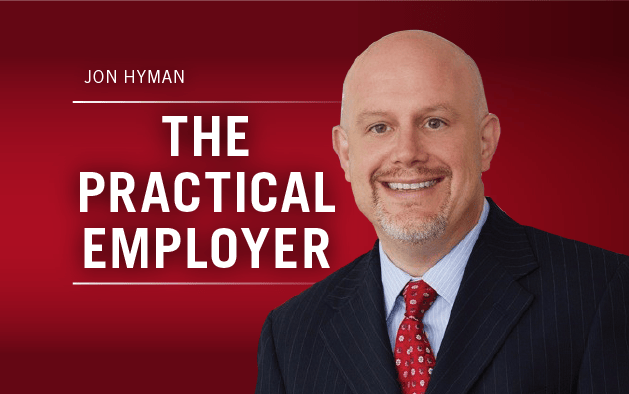In AT&T Mobility v. Concepcion, the United States Supreme Court held that a business could compel a group of individuals to waive their right to file a class-action lawsuit and instead arbitrate their collective dispute. Employers rejoiced, believing that they finally had the weapon they needed to battle the scourge of wage-and-hour class actions. 
The National Labor Relations Board, however, had different ideas.
In its seminal 2012 decision, D.R. Horton Inc., the NLRB held that an arbitration agreement violated the National Labor Relations Act’s protections for employee concerted activity. The facts are pretty straightforward. The employer required all of its employees, as a condition of their employment, to sign a master arbitration agreement, under which they agreed:
To submit all disputes and claims relating to their employment to final and binding arbitration.
That the arbitrator “may hear only … individual claims,” and “does not have authority to fashion a proceeding as a class or collective action or to award relief to a group or class of employees in one arbitration proceeding.”
To waive “the right to file a lawsuit or other civil proceeding relating to … employment with the Company.”
The NLRB concluded that the agreement “unlawfully restricts employees’ Section 7 right to engage in concerted action for mutual aid or protection,” and held that the employer “violated Section 8(a)(1) by requiring employees to waive their right to collectively pursue employment-related claims in all forums, arbitral and judicial.”
In the four years since they decided D.R. Horton, the NLRB has invalidated too many similar arbitration agreements and class-action waivers to count, and further expanded D.R. Horton to make it nearly impossible for any class-action waiver to pass muster. The board has even gone so far as to invalidate agreements that expressly carve out the right for employees to pursue claims with state and federal administrative agencies such as the NLRB.
In the board’s opinion, even those agreements are illegal because rank-and-file employees aren’t lawyers and aren’t capable of reading and understanding the agreement: “Viewed from an employee’s perspective … it would take ‘specialized legal knowledge’ to determine whether employees’ right to file Board charges is permitted or precluded by these caveats.”
On appeal, however, not all federal circuit courts have been kind to D.R. Horton. The 5th Circuit overturned D.R. Horton itself, while other circuits have sided with the NLRB on this important issue.
Now, however, the Supreme Court is poised to have the final say. It has agreed to hear the appeal of three cases, which should put this issue to bed once and for all.
In NLRB v. Murphy Oil USA (5th Cir., holding that the “corporation did not commit unfair labor practices by requiring employees to sign its arbitration agreement or seeking to enforce that agreement in federal district court.”); Lewis v. Epic Systems (7th Cir., holding that an arbitration agreement that “precludes employees from seeking any class, collective, or representative remedies to wage-and-hour disputes” violates the NLRA); and Morris v. Ernst & Young LLP (9th Cir., agreeing with Lewis, holding that “an employer violates the National Labor Relations Act by requiring employees to sign an agreement precluding them from bringing, in any forum, a concerted legal claim regarding wages, hours, and terms and conditions of employment.”), the justices agreed to decide whether agreements to require employees to forgo class actions or collective proceedings, and instead resolve employment disputes via individual arbitration, violate the NLRA.
How the Supreme Court decides this issue is of critical importance to employers. Wage-and-hour class actions are one of the biggest risks that employers face.
The law that governs the payment of minimum wage and overtime in the country, the Fair Labor Standards Act, is more than 70 years old. It shows every bit of its age.
Over time it’s been amended again and again, with regulation upon regulation piled on. What we are left with is an anachronistic maze of rules and regulations in which one would need a Ph.D. in FLSA (if such a thing existed) just to make sense of it all.
Since most employers are experts in running their businesses but not necessarily experts in the ins and outs of the intricacies of the Fair Labor Standards Act, they are fighting a compliance battle they cannot hope to win. And the prize for noncompliance is the cost of defending a class-action lawsuit.
Employers desperately need the Supreme Court to overturn D.R. Horton so that they can recapture a key weapon against the wage-and-hour class actions.
Jon Hyman is a partner at Meyers, Roman, Friedberg & Lewis in Cleveland. To comment, email editors@workforce.com. Follow Hyman’s blog at Workforce.com/PracticalEmployer.

